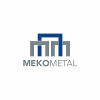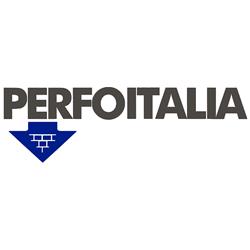AMETEK SPECIALTY METAL PRODUCTS - Advanced Metallurgical Products for Critical Applications.
United States
Manufacturer/ Producer

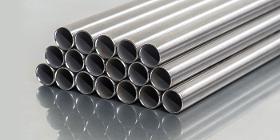
AMETEK SPECIALTY METAL PRODUCTS
United States
Grade 316 is the standard molybdenum-bearing grade, second in overall volume production to 304 amongst the austenitic stainless steels. The molybdenum gives 316 better overall corrosion resistant properties than Grade 304, particularly higher resistance to pitting and crevice corrosion in chloride environments. Grade 316L, the low carbon version of 316 and has very high immunity from sensitization (grain boundary carbide precipitation). It is extensively used in the oil and gas and chemical industries for its cost effective corrosion resistance and ease of fabrication. There is commonly no appreciable price difference between 316 and 316L stainless steel. The austenitic structure also gives these grades excellent toughness, even down to cryogenic temperatures. Compared to chromium-nickel austenitic stainless steels, 316L stainless steel offers higher creep, stress to rupture and tensile strength at elevated temperatures. Please note that we have a minimum order value of £10,000.
Request for a quote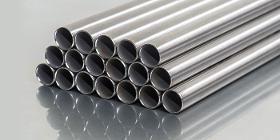
AMETEK SPECIALTY METAL PRODUCTS
United States
S20910 stainless steel provides a combination of good corrosion resistance and strength not found in any other commercial material available in its price range. This austenitic stainless steel has corrosion resistance greater than that provided by types 316 and 316L, plus approximately twice the yield strength at room temperature in the annealed condition. In addition S20910 stainless steel has very good mechanical properties at both elevated and sub-zero temperatures a well as outstanding cryogenic properties. And, unlike many austenitic stainless steels, 22-13-5 stainless steel can be heavily cold worked to enhance its yield strength and remain non-magnetic. Please note that we have a minimum order value of £10,000.
Request for a quote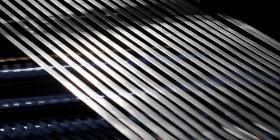
AMETEK SPECIALTY METAL PRODUCTS
United States
Here at Hamilton Precision Metals, we’re passionate about cold rolling metal strip in a diverse range of specialty alloys to meet your exacting specifications. Our extensive precision strip product range include stainless steel strip, nickel strip, titanium strip, copper based strip, cobalt based strip and many more alloys. We have the expertise to roll light gauge strip from 1.5 mm (.060”) down to 0.127 mm (0.005”). Broadest Range of Alloys We offer an extensive portfolio of almost every high performance alloy made today. Additional alloys are available upon request, contact us today! Stainless Steels Nickel Based Alloys Copper Based Alloys Cobalt Based Alloys Commercially Pure Titaniums Strain Gage: Constantan®, Evanohm®,
Request for a quote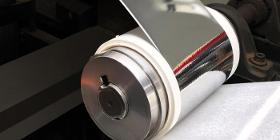
AMETEK SPECIALTY METAL PRODUCTS
United States
Hamilton Precision Metals is the world leader of precision-rolled foil and ultra-light gauge strip in any alloy. This includes stainless steel foil, titanium foil, nickel foil, copper based foil, cobalt based foil, Constantan® foil, Evanohm® foil, and many other alloys. Metal foil is generally defined as strip 0.004” (0.1016 mm) and below. Cold rolling strip to these extremely thin gauges demands extensive rolling expertise to manufacture with precision and consistency. Foil in Any Alloy We offer the broadest portfolio of almost every high performance alloy made today. Additional alloys are available upon request, contact us today! Stainless Steels Nickel Based Alloys Copper Based Alloys Cobalt Based Alloys Commercially Pure Titaniums Strain Gage: Constantan®, Evanohm®, Tightest Tolerances and Thinnest Gauges in the Industry We custom roll metal foil in nearly any alloy and specialty metal to the tightest tolerances and thinnest gauges
Request for a quote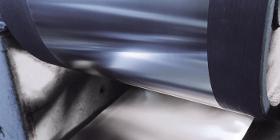
AMETEK SPECIALTY METAL PRODUCTS
United States
Stainless steel is an iron alloy, containing a minimum of 10.5% chromium. It is often combined with other alloying elements such as nickel, nitrogen, and molybdenum to create the corrosion-resistant product used in many applications. Hamilton Precision Metals offers a diverse range of 300 and 400 series stainless steels.
Request for a quote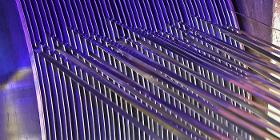
AMETEK SPECIALTY METAL PRODUCTS
United States
HPM® 455 is a precipitation heat treatable martensitic Stainless Steel. The composition provides a good combination of corrosion resistance and heat treated strength favorable for fatigue applications. The material is well suited for demanding spring devices The alloy has reasonably good forming characteristics in the annealed temper considering that it has a hardness of RC30. A significant radius is useful when bending is necessary in a fabrication. Cold working prior to the precipitation hardening treatment can drive finish strength up to 270,000 PSI (0.2% offset yield strength). The alloy retains a good strength through 800°F (Approx. 70% of room temperature). Resistance to stress – corrosion cracking is optimized by heat treating at 950°F. The overall corrosion resistant to normal atmospheric is equal to SS 430 with no staining. The alloy can be welded by resistance and inert gas shielded techniques. It also is suitable for brazing using a flux when possible.
Request for a quote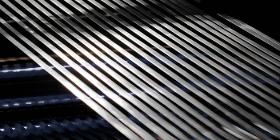
AMETEK SPECIALTY METAL PRODUCTS
United States
SS 17/4 PH® is a precipitation hardenable Martensitic stainless steel with high strength, and good corrosion resistance. This makes it perfect for use in metal diaphragms, for both aerospace sensors and burst discs. It is easily heat treated from the annealed temper. The corrosion resistance of the alloy is comparable to SS 302. It is heat treated at 900° F/1 Hour for highest strength. Other thermal treatments can be utilized to provide greater toughness and improved formability. Joining of the alloy is accomplished by the usual methods that are effective for stainless steel. Available Sizes: SS 17/4 PH® is available from Hamilton Precision Metals as strip product in thicknesses from 0.001” to 0.050” (0.0254 mm to 1.27 mm) and widths up to 12.0” (304.8 mm). The material conforms to AMS 5604, ASTM A693 and UNS S17400.
Request for a quote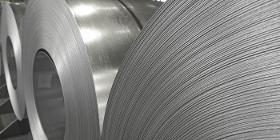
AMETEK SPECIALTY METAL PRODUCTS
United States
SS 17/7 PH® is a precipitation hardenable stainless steel that is formable and also capable of meeting high strength requirements. It is utilized in applications that require both high strength and good corrosion resistance. The alloy is classified as semi-austenitic to distinguish the soft phase (austenite) available for ease of forming from the high strength phase (martensite) usually achieved by heat treatment. The alloy can be formed from the annealed temper but due to a rapid work hardening rate may not be deep drawn without intermediate annealing. It is joined by most arc and resistance methods used for stainless steel. It should not be fusion welded unless shielded by inert gas to prevent oxidation of aluminum.
Request for a quote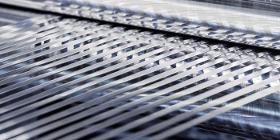
AMETEK SPECIALTY METAL PRODUCTS
United States
SS 301 is an austenitic Chromium-Nickel stainless steel capable of attaining high strength with moderate cold working. The combination of high strength and good ductility makes it suitable for numerous mechanical switches as well as surgical instruments, metal stampings and electronic and computer spring components.. The alloy is readily formed in the annealed temper. Ductility decreases with increased cold rolled strength but not to the degree that would occur with SS 302. It is not recommended for deep drawing. SS 301 can be welded by all conventional processed except oxy-acetylene. The weld should not make contact with electrolytes to prevent intergranular corrosion. SS 301 is resistant to atmospheric corrosion and is additionally resistant to mildly corrosive mediums. The combination of narrow strength bands and close thickness tolerance provided by Hamilton Precision Metals is the key to repeatable response characteristic in spring and switch applications.
Request for a quote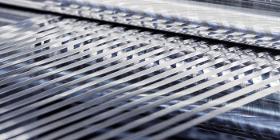
AMETEK SPECIALTY METAL PRODUCTS
United States
SS 302 is an austenitic Chromium-Nickel stainless steel offering the optimum combination of corrosion resistance, strength and ductility. These attributes make it a favorite for many mechanical switch components, as well as surgical instruments. The alloy is readily formed in the annealed temper. SS 302 may be joined by all commonly used brazing and welding methods including oxyacetylene. Caution should be used to avoid cooling slowly through the range of 900° to 1600°F where carbide network could form and reduce corrosion resistance. This characteristic is diminished due to the typically low carbon composition of Hamilton’s SS 302. The corrosive resistance to acids is generally very good with the exception of halogen acids.
Request for a quoteManufacturer/ Producer
3900 Germantown Pike
19426 Collegeville - United States
europages also recommends
A selection of companies related to the activity:
A selection of products that might interest you
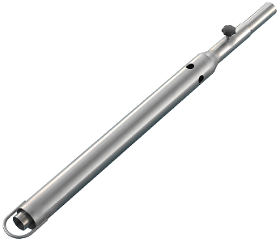
HS UMFORMTECHNIK GMBH
Germany
Suction lances / suction tubes can be delivered in different diameters right from stock. We also can manufacture according to your drawing and/or sketch or sample. material: stainless steel AISI 304 or aluminium AlMgSi 0.5 F22 in all common tube dimension 40.0 / 50.0 and 60.3 mm right from stock special versions can be realised at short notice and for short delivery
Request for a quote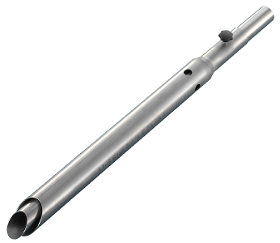
HS UMFORMTECHNIK GMBH
Germany
Suction lances / suction tubes can be delivered in different diameters right from stock. We also can manufacture according to your drawing and/or sketch or sample. material: stainless steel AISI 304 or aluminium AlMgSi 0.5 F22 in all common tube dimension 40.0 / 50.0 and 60.3 mm right from stock special versions can be realised at short notice and for short delivery
Request for a quote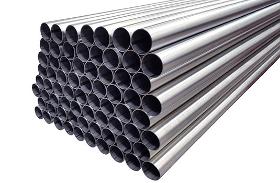
HS UMFORMTECHNIK GMBH
Germany
Our stainless steel pipes offer the following characteristics: pipe ends deburred quantity delivered in accordance with customer’s specifications well and protective transport packed
Request for a quote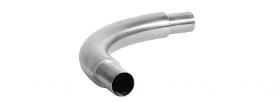
HS UMFORMTECHNIK GMBH
Germany
In pneumatic conveying systems, conveying abrasive products – in particular at high conveying speeds – leads to abrasion and thus to wear in the pipe bends. In order to prevent this, the pipe bend of our highly wear-resistant DWR double-skin stainless pipe bends is encased in a second pipe bend, which creates a double-walled chamber. This acts, so to speak, as a “protective shield”: After the wear has taken place on the internal pipe bend, it fills with the product to be conveyed. When this process is completed, you are then conveying „product on product“ – and no further wear is possible! Version I: „Product-on-product” In this variant, the classic “double skin” comes into effect. not suitable for foodstuffs not suitable for material change Version II: „Lined with concrete” lined with extremely hard concrete colour: light grey not suitable for foodstuffs also available: lined with borosilicate glass
Request for a quoteRequest for quotes
Create one request and get multiple quotes form verified suppliers.
- Only relevant suppliers
- Data privacy compliant
- 100% free

